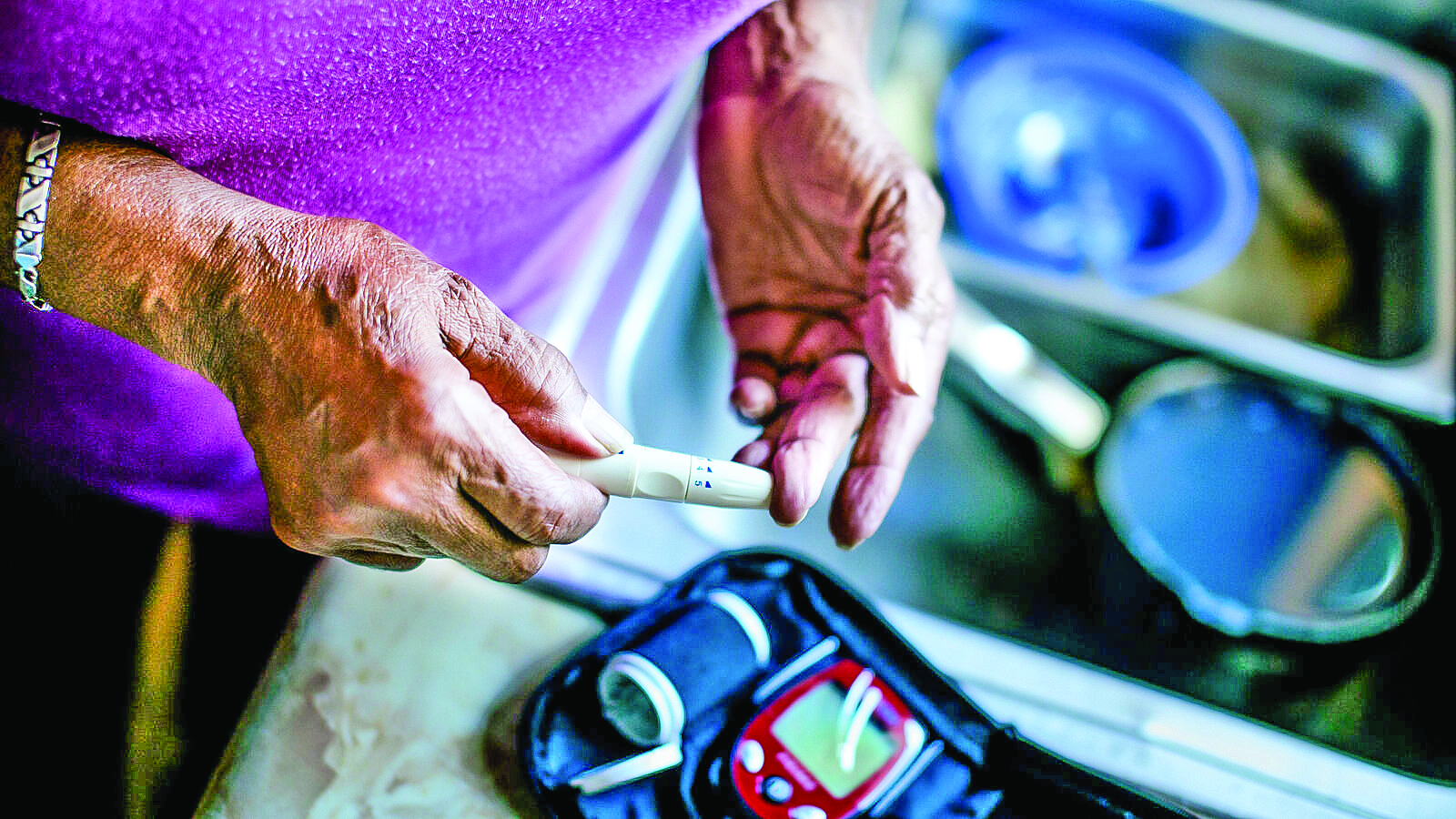Blood sugar is the body’s primary energy source. Insulin plays a key role in regulating the blood glucose level and keeps it within a normal range. Uncontrolled blood sugar also known as Dysglycemia is when insulin doesn’t work as it should, and (blood sugar) glucose stays in the blood. This creates high blood sugar, known as hyperglycemia. Blood sugar can also go too low. This is a condition known as hypoglycemia.
Hyperglycemia in Diabetes:
Resistance to the action of insulin or deficiency of insulin can lead to hyperglycemia
Common complications of High Blood Sugar
= Diabetic Retinopathy
Diabetic Retinopathy affects the eye, especially the blood vessels around the retina, leading to vision loss or blindness.
= Diabetic Nephropathy
Diabetic Nephropathy affects the kidneys, causing them to lose function, leading to kidney failure over time, requiring dialysis or transplant.
= Diabetic Neuropathy
Diabetic Neuropathy affects the nerves, causing numbness in the feet, legs, hands, or arms. It can further damage nerves, affecting the digestive, reproductive, urinary systems and heart.
= Diabetic Foot-Ulcers
Diabetic Foot Ulcers are open sores that develop on different parts of the feet due to nerve damage, poor blood circulation, and infection. They can be very difficult to heal and, when left untreated, can lead to gangrene or amputation.
=Heart attack and stroke
High blood sugar for a period can damage the blood vessels. This may lead to heart attacks and strokes.
Hypoglycemia in Diabetes:
This is often related to medications for diabetes treatment or when the intake of sugar is insufficient or delayed
Common complications of Low Blood Sugar
=Symptoms
Low blood sugar causes hunger, shakiness, sweating, dizziness, headache, confusion, irritability, or fainting
=Brain Damage
Low blood sugar can deprive the brain of oxygen and sugar, damaging brain cells and causing cognitive impairment or neurological disorders.
=Coma
Low blood sugar causes loss of consciousness that can further result in brain damage, organ failure, or death.
=Cardiac Arrest
Low blood sugar can affect the heart rhythm and blood pressure, causing cardiac arrhythmias, heart attack, or cardiac arrest.
Ways to control High Blood Sugar
=Adhere to the outlined treatment plan
=Monitor the blood sugar levels regularly
=Exercise regularly and stay physically active
=Drink plenty of water and have a balanced diet
=Manage stress and practice relaxation techniques
Ways to control Low Blood Sugar
=Limit or avoid alcohol intake
=Avoid skipping meals or fasting
=Carry a source of fast-acting sugar tablet
=Wear a medical alert bracelet or necklace
=Supervise the blood sugar levels at intervals
Blood Sugar is a vital component of the body’s metabolism and health. However, it causes irreversible damage to various organs and systems when it becomes too high or too low. Therefore, it is essential to maintain an active and healthy lifestyle and follow the treatment plan prescribed by healthcare experts to prevent or manage dysglycemia. While it may prove to be difficult, patients can seek guidance from peer groups, support programs and associations that provide education and support for people living with diabetes or prediabetes. Humrahi helps patients understand their condition, monitor their blood sugar, follow a balanced diet, exercise regularly, and adhere to treatment plans. Humrahi also connects patients with peers, mentors, and experts who can offer emotional and practical support and motivate them to achieve their health goals and live healthier lives.
The author is the MBBS MD, FRCP (London, Glasgow), FACP (USA) Esani Diabetic Centre, Tolichowki, Hyderabad.







